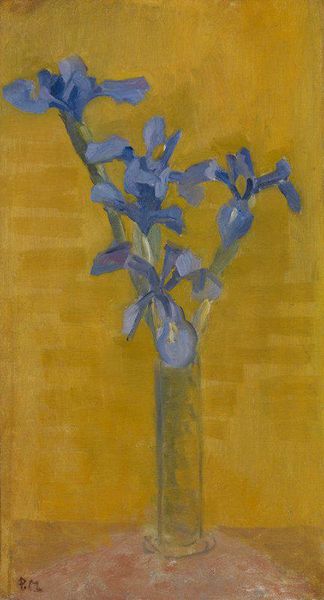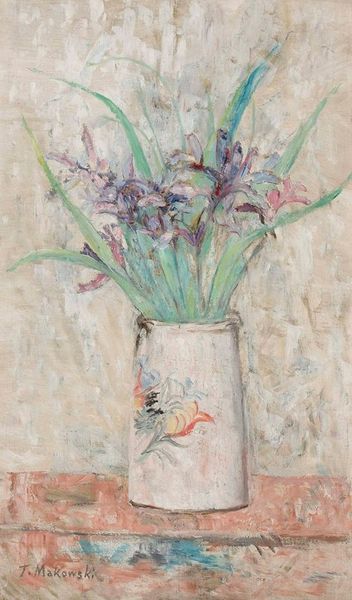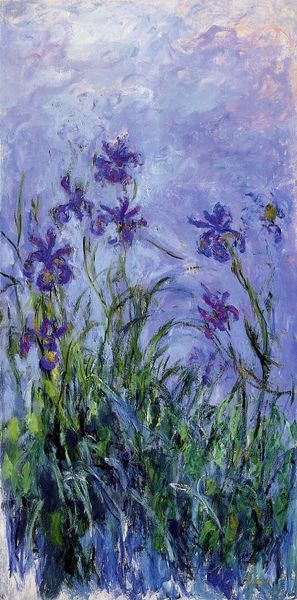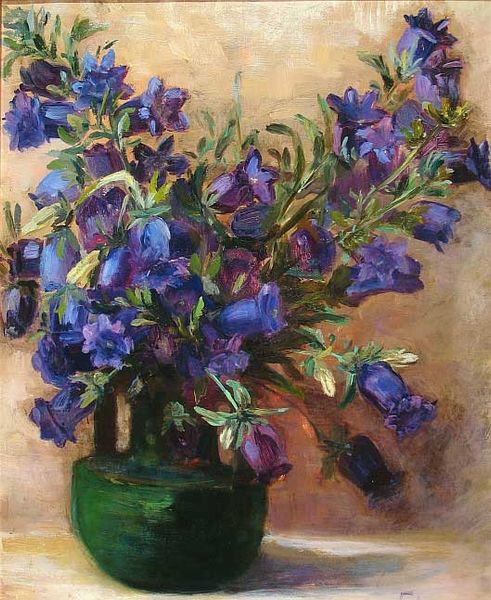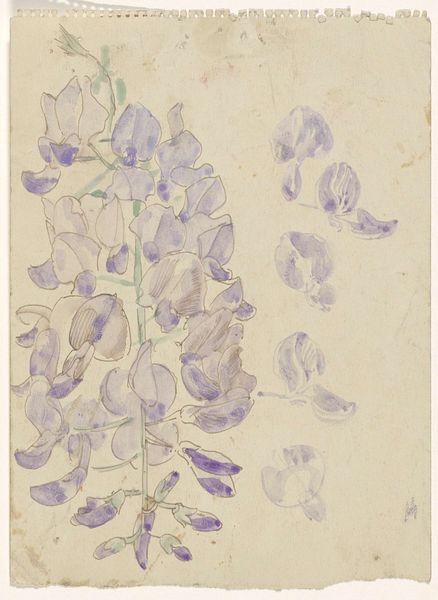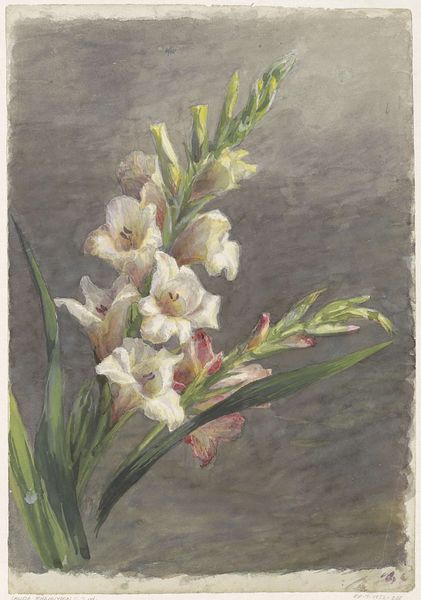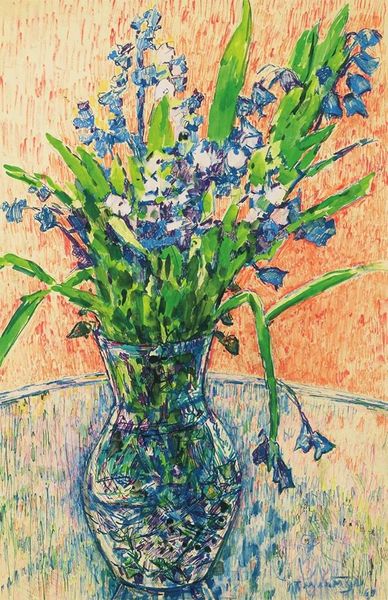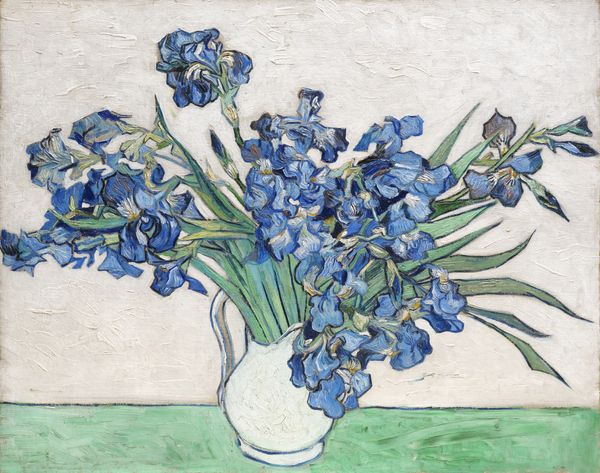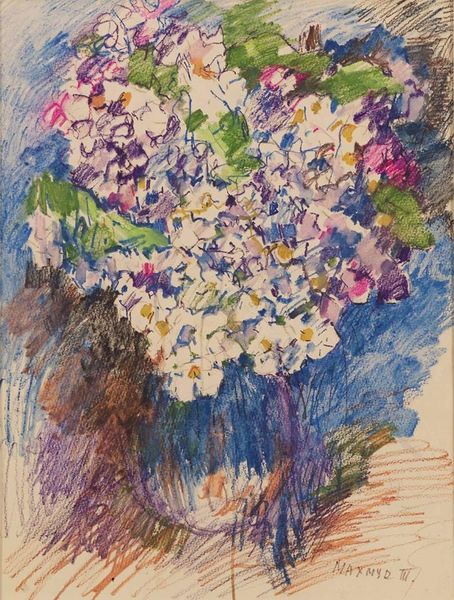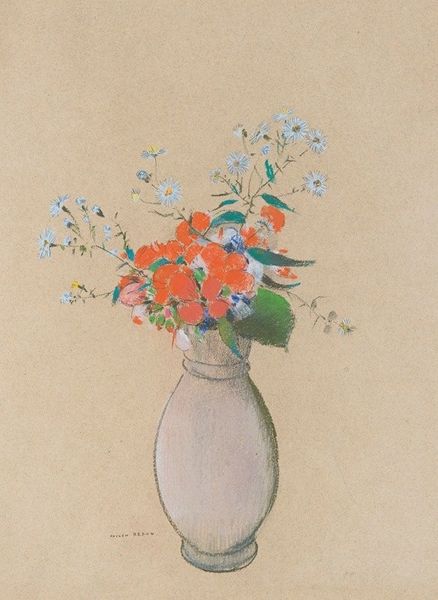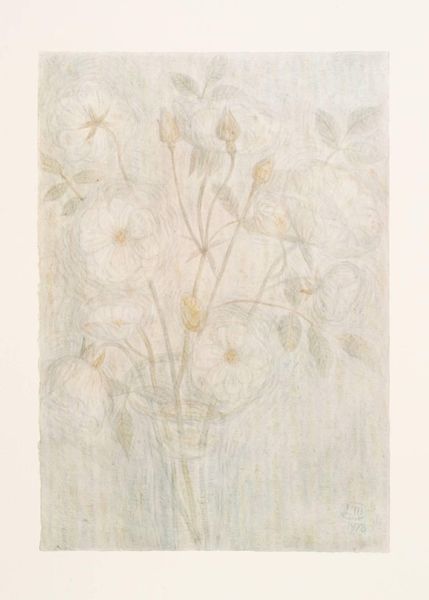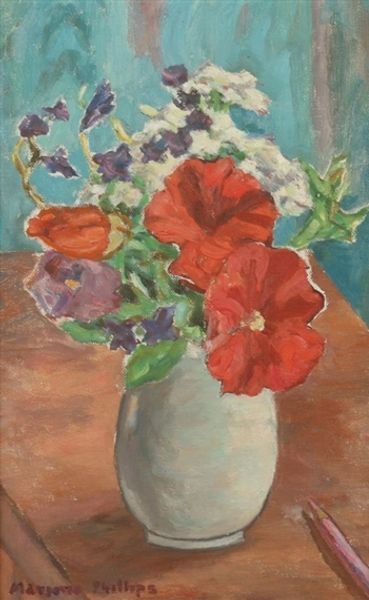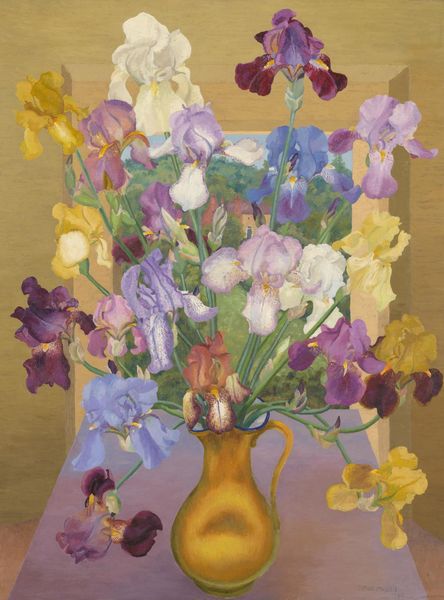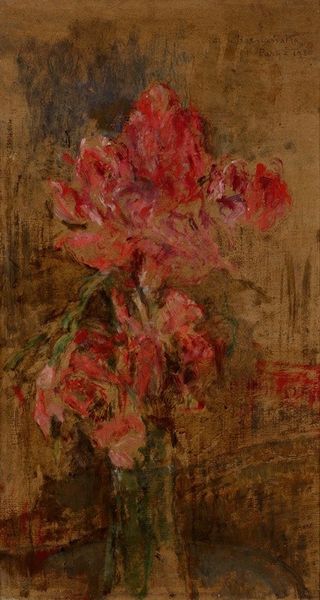
painting, impasto, pastel
#
painting
#
flower
#
impasto
#
plant
#
abstraction
#
pastel
#
modernism
#
watercolor
Copyright: Avigdor Arikha,Fair Use
Editor: Here we have Avigdor Arikha's "Flowers in a Vase," created in 2003, a pastel painting. There's a delicacy and fragility that the medium brings to the depiction of these blooms. What do you see in this piece that stands out to you? Curator: Well, considering Arikha's wider body of work, it's vital to examine his commitment to realism as a conscious decision – a break away from the abstract expressionism popular during his earlier career. How can we view realism in this particular piece? Considering its date, doesn’t the return to observable reality operate almost as a political act? Editor: Political? In what sense? Because it’s representational? Curator: Precisely. By choosing to represent what is immediately in front of him, the still life, the everyday, he rejects the dominating abstract language. Look at the context in which Arikha was working; think about Greenberg’s formalist concerns… Arikha almost deliberately counters these theories by embracing vulnerability through realistic depictions. How do you read the “unfinished” nature of the backdrop? Does that strengthen the idea that we're seeing an action, the political act, in real-time? Editor: That’s interesting, I hadn't thought of it as such a deliberate act. It does bring attention to the moment of creation, it shows the artistic process right in front of you. Curator: Yes. Consider also the social and philosophical context in the early 2000s. His rejection of prevailing artistic trends challenges not just artistic conventions but the commodification and institutionalization of certain forms of expression, a statement on authenticity, particularly given his background as a Jewish-Romanian artist. Editor: So by focusing on realism, he's pushing against dominant artistic structures and making a personal statement. Curator: Exactly. He gives value back to tangible experience. Editor: Thanks for your thoughts. It certainly has broadened my understanding of Arikha's motivations. Curator: And I learned something from your fresh point of view, that saw fragility instead of a statement first.
Comments
No comments
Be the first to comment and join the conversation on the ultimate creative platform.
